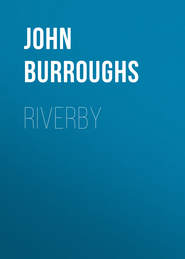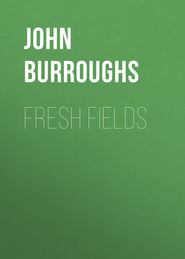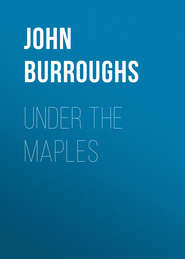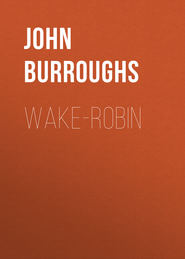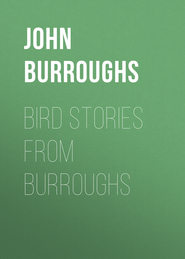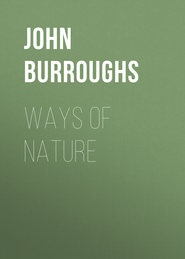По всем вопросам обращайтесь на: info@litportal.ru
(©) 2003-2024.
✖
Camping with President Roosevelt
Настройки чтения
Размер шрифта
Высота строк
Поля
DEER FEEDING IN THE STREETS
Another novel spectacle was at night, or near sundown, when the deer came down from the hills into the streets, and ate hay a few yards from the officers' quarters, as unconcernedly as so many domestic sheep. This they had been doing all winter, and they kept it up till May, at times a score or more of them profiting thus on the government's bounty. When the sundown gun was fired a couple of hundred yards away, they gave a nervous start, but kept on with their feeding. The antelope and elk and mountain sheep had not yet grown bold enough to accept Uncle Sam's charity in that way.
The President wanted all the freedom and solitude possible while in the Park, so all newspaper men and other strangers were excluded. Even the secret service men and his physician and private secretaries were left at Gardiner. He craved once more to be alone with nature; he was evidently hungry for the wild and the aboriginal, – a hunger that seems to come upon him regularly at least once a year, and drives him forth on his hunting trips for big game in the West.
We spent two weeks in the Park, and had fair weather, bright, crisp days, and clear, freezing nights. The first week we occupied three camps that had been prepared, or partly prepared, for us in the northeast corner of the Park, in the region drained by the Gardiner River, where there was but little snow, and which we reached on horseback.
VISIT TO THE GEYSER REGION
The second week we visited the geyser region, which lies a thousand feet or more higher, and where the snow was still five or six feet deep. This part of the journey was made in big sleighs, each drawn by two span of horses.
On the horseback excursion, which involved only about fifty miles of riding, we had a mule pack train, and Sibley tents and stoves, with quite a retinue of camp laborers, a lieutenant and an orderly or two, and a guide, Billy Hofer.
THE FIRST CAMP
The first camp was in a wild, rocky, and picturesque gorge on the Yellowstone, about ten miles from the fort. A slight indisposition, the result of luxurious living, with no wood to chop or to saw, and no hills to climb, as at home, prevented me from joining the party till the third day. Then Captain Chittenden drove me eight miles in a buggy. About two miles from camp we came to a picket of two or three soldiers, where my big bay was in waiting for me. I mounted him confidently, and, guided by an orderly, took the narrow, winding trail toward camp. Except for an hour's riding the day before with Captain Chittenden, I had not been on a horse's back for nearly fifty years, and I had not spent as much as a day in the saddle during my youth. That first sense of a live, spirited, powerful animal beneath you, at whose mercy you are, – you, a pedestrian all your days, – with gullies and rocks and logs to cross, and deep chasms opening close beside you, is not a little disturbing. But my big bay did his part well, and I did not lose my head or my nerve, as we cautiously made our way along the narrow path on the side of the steep gorge, with a foaming torrent rushing along at its foot, nor yet when we forded the rocky and rapid Yellowstone. A misstep or a stumble on the part of my steed, and probably the first bubble of my confidence would have been shivered at once; but this did not happen, and in due time we reached the group of tents that formed the President's camp.
THE PRESIDENT ALONE IN THE WILDERNESS
The situation was delightful, – no snow, scattered pine trees, a secluded valley, rocky heights, and the clear, ample, trouty waters of the Yellowstone. The President was not in camp. In the morning he had stated his wish to go alone into the wilderness. Major Pitcher very naturally did not quite like the idea, and wished to send an orderly with him.
"No," said the President. "Put me up a lunch, and let me go alone. I will surely come back."
And back he surely came. It was about five o'clock when he came briskly down the path from the east to the camp. It came out that he had tramped about eighteen miles through a very rough country. The day before, he and the major had located a band of several hundred elk on a broad, treeless hillside, and his purpose was to find those elk, and creep up on them, and eat his lunch under their very noses. And this he did, spending an hour or more within fifty yards of them. He came back looking as fresh as when he started, and at night, sitting before the big camp fire, related his adventure, and talked with his usual emphasis and copiousness of many things. He told me of the birds he had seen or heard; among them he had heard one that was new to him. From his description I told him I thought it was Townsend's solitaire, a bird I much wanted to see and hear. I had heard the West India solitaire, – one of the most impressive songsters I ever heard, – and I wished to compare our Western form with it.
A STRANGE BIRD SONG
The next morning we set out for our second camp, ten or a dozen miles away, and in reaching it passed over much of the ground the President had traversed the day before. As we came to a wild, rocky place above a deep chasm of the river, with a few scattered pine trees, the President said, "It was right here that I heard that strange bird song." We paused a moment. "And there it is now," he exclaimed.
THE SOLITAIRE
Sure enough, there was the solitaire singing from the top of a small cedar, – a bright, animated, eloquent song, but without the richness and magic of the song of the tropical species. We hitched our horses, and followed the bird up as it flew from tree to tree. The President was as eager to see and hear it as I was. It seemed very shy, and we only caught glimpses of it. In form and color it much resembles its West India cousin, and suggests our catbird. It ceased to sing when we pursued it. It is a bird found only in the wilder and higher parts of the Rockies. My impression was that its song did not quite merit the encomiums that have been pronounced upon it.
At this point, I saw amid the rocks my first and only Rocky Mountain woodchucks, and, soon after we had resumed our journey, our first blue grouse, – a number of them like larger partridges. Occasionally we would come upon black-tailed deer, standing or lying down in the bushes, their large ears at attention being the first thing to catch the eye. They would often allow us to pass within a few rods of them without showing alarm. Elk horns were scattered all over this part of the Park, and we passed several old carcasses of dead elk that had probably died a natural death.
THE "SINGING GOPHER"
In a grassy bottom at the foot of a steep hill, while the President and I were dismounted, and noting the pleasing picture which our pack train of fifteen or twenty mules made filing along the side of a steep grassy slope, – a picture which he has preserved in his late volume, "Out-Door Pastimes of an American Hunter," – our attention was attracted by plaintive, musical, bird-like chirps that rose from the grass about us. I was almost certain it was made by a bird; the President was of like opinion; and I kicked about in the tufts of grass, hoping to flush the bird. Now here, now there, arose this sharp, but bird-like note. Finally we found that it was made by a species of gopher, whose holes we soon discovered. What its specific name is I do not know, but it should be called the singing gopher.
Our destination this day was a camp on Cottonwood Creek, near "Hell Roaring Creek." As we made our way in the afternoon along a broad, open, grassy valley, I saw a horseman come galloping over the hill to our right, starting up a band of elk as he came; riding across the plain, he wheeled his horse, and, with the military salute, joined our party. He proved to be a government scout, called the "Duke of Hell Roaring," – an educated officer from the Austrian army, who, for some unknown reason, had exiled himself here in this out-of-the-way part of the world. He was a man in his prime, of fine, military look and bearing. After conversing a few moments with the President and Major Pitcher, he rode rapidly away.
THE SECOND CAMP
Our second camp, which we reached in mid-afternoon, was in the edge of the woods on the banks of a fine, large trout stream, where ice and snow still lingered in patches. I tried for trout in the head of a large, partly open pool, but did not get a rise; too much ice in the stream, I concluded. Very soon my attention was attracted by a strange note, or call, in the spruce woods. The President had also noticed it, and, with me, wondered what made it. Was it bird or beast? Billy Hofer said he thought it was an owl, but it in no way suggested an owl, and the sun was shining brightly. It was a sound such as a boy might make by blowing in the neck of an empty bottle. Presently we heard it beyond us on the other side of the creek, which was pretty good proof that the creature had wings.
"Let's go run that bird down," said the President to me.
So off we started across a small, open, snow-streaked plain, toward the woods beyond it. We soon decided that the bird was on the top of one of a group of tall spruces. After much skipping about over logs and rocks, and much craning of our necks, we made him out on the peak of a spruce. I imitated his call, when he turned his head down toward us, but we could not make out what he was.
"Why did we not think to bring the glasses?" said the President.
"I will run and get them," I replied.
TREEING AN OWL
"No," said he, "you stay here and keep that bird treed, and I will fetch them."
So off he went like a boy, and was very soon back with the glasses. We quickly made out that it was indeed an owl, – the pigmy owl, as it turned out, – not much larger than a bluebird. I think the President was as pleased as if we had bagged some big game. He had never seen the bird before.
Throughout the trip I found his interest in bird life very keen, and his eye and ear remarkably quick. He usually saw the bird or heard its note as quickly as I did, – and I had nothing else to think about, and had been teaching my eye and ear the trick of it for over fifty years. Of course, his training as a big-game hunter stood him in good stead, but back of that were his naturalist's instincts, and his genuine love of all forms of wild life.
ROOSEVELT THE NATURALIST
I have been told that his ambition up to the time he went to Harvard had been to be a naturalist, but that there they seem to have convinced him that all the out-of-door worlds of natural history had been conquered, and that the only worlds remaining were in the laboratory, and to be won with the microscope and the scalpel. But Roosevelt was a man made for action in a wide field, and laboratory conquests could not satisfy him. His instincts as a naturalist, however, lie back of all his hunting expeditions, and, in a large measure, I think, prompt them. Certain it is that his hunting records contain more live natural history than any similar records known to me, unless it be those of Charles St. John, the Scotch naturalist-sportsman.
The Canada jays, or camp-robbers, as they are often called, soon found out our camp that afternoon, and no sooner had the cook begun to throw out peelings and scraps and crusts than the jays began to carry them off, not to eat, as I observed, but to hide them in the thicker branches of the spruce trees. How tame they were, coming within three or four yards of one! Why this species of jay should everywhere be so familiar, and all other kinds so wild, is a puzzle.
In the morning, as we rode down the valley toward our next camping-place, at Tower Falls, a band of elk containing a hundred or more started along the side of the hill a few hundred yards away. I was some distance behind the rest of the party, as usual, when I saw the President wheel his horse off to the left, and, beckoning to me to follow, start at a tearing pace on the trail of the fleeing elk. He afterwards told me that he wanted me to get a good view of those elk at close range, and he was afraid that if he sent the major or Hofer to lead me, I would not get it. I hurried along as fast as I could, which was not fast; the way was rough, – logs, rocks, spring runs, and a tenderfoot rider.
WILD ELK
Now and then the President, looking back and seeing what slow progress I was making, would beckon to me impatiently, and I could fancy him saying, "If I had a rope around him, he would come faster than that!" Once or twice I lost sight of both him and the elk; the altitude was great, and the horse was laboring like a steam-engine on an upgrade. Still I urged him on. Presently, as I broke over a hill, I saw the President pressing the elk up the opposite slope. At the brow of the hill he stopped, and I soon joined him. There on the top, not fifty yards away, stood the elk in a mass, their heads toward us and their tongues hanging out. They could run no farther. The President laughed like a boy. The spectacle meant much more to him than it did to me. I had never seen a wild elk till on this trip, but they had been among the notable game that he had hunted. He had traveled hundreds of miles, and undergone great hardships, to get within rifle range of these creatures. Now here stood scores of them, with lolling tongues, begging for mercy.
After gazing at them to our hearts' content, we turned away to look up our companions, who were nowhere within sight. We finally spied them a mile or more away, and, joining them, all made our way to an elevated plateau that commanded an open landscape three or four miles across. It was high noon, and the sun shone clear and warm. From this lookout we saw herds upon herds of elk scattered over the slopes and gentle valleys in front of us. Some were grazing, some were standing or lying upon the ground, or upon the patches of snow. Through our glasses we counted the separate bands, and then the numbers of some of the bands or groups, and estimated that three thousand elk were in full view in the landscape around us. It was a notable spectacle. Afterward, in Montana, I attended a council of Indian chiefs at one of the Indian agencies, and told them, through their interpreter, that I had been with the Great Chief in the Park, and of the game we had seen. When I told them of these three thousand elk all in view at once, they grunted loudly, whether with satisfaction or with incredulity, I could not tell.
In the midst of this great game amphitheatre we dismounted and enjoyed the prospect. And the President did an unusual thing, he loafed for nearly an hour, – stretched himself out in the sunshine upon a flat rock, as did the rest of us, and, I hope, got a few winks of sleep. I am sure I did. Little, slender, striped chipmunks, about half the size of ours, were scurrying about; but I recall no other wild thing save the elk.
TOWER FALLS
From here we rode down the valley to our third camp, at Tower Falls, stopping on the way to eat our luncheon on a washed boulder beside a creek. On this ride I saw my first and only badger; he stuck his striped head out of his hole in the ground only a few yards away from us as we passed.
Our camp at Tower Falls was amid the spruces above a cañon of the Yellowstone, five or six hundred feet deep. It was a beautiful and impressive situation, – shelter, snugness, even cosiness, – looking over the brink of the awful and the terrifying. With a run and a jump I think one might have landed in the river at the bottom of the great abyss, and in doing so might have scaled one of those natural obelisks or needles of rock that stand up out of the depths two or three hundred feet high. Nature shows you what an enormous furrow her plough can open through the strata when mowing horizontally, at the same time that she shows you what delicate and graceful columns her slower and gentler aerial forces can carve out of the piled strata. At the Falls there were two or three of these columns, like the picket-pins of the elder gods.
MOUNTAIN SHEEP
Across the cañon in front of our camp, upon a grassy plateau which was faced by a wall of trap rock, apparently thirty or forty feet high, a band of mountain sheep soon attracted our attention. They were within long rifle range, but were not at all disturbed by our presence, nor had they been disturbed by the road-builders who, under Captain Chittenden, were constructing a government road along the brink of the cañon. We speculated as to whether or not the sheep could get down the almost perpendicular face of the chasm to the river to drink. It seemed to me impossible. Would they try it while we were there to see? We all hoped so; and sure enough, late in the afternoon the word came to our tents that the sheep were coming down. The President, with coat off and a towel around his neck, was shaving. One side of his face was half shaved, and the other side lathered. Hofer and I started for a point on the brink of the cañon where we could have a better view.
"By Jove," said the President, "I must see that. The shaving can wait, and the sheep won't."
WATCHING THE "STUNT"
So on he came, accoutred as he was, – coatless, hatless, but not latherless, nor towelless. Like the rest of us, his only thought was to see those sheep do their "stunt." With glasses in hand, we watched them descend those perilous heights, leaping from point to point, finding a foothold where none appeared to our eyes, loosening fragments of the crumbling rocks as they came, now poised upon some narrow shelf and preparing for the next leap, zigzagging or plunging straight down till the bottom was reached, and not one accident or misstep amid all that insecure footing. I think the President was the most pleased of us all; he laughed with the delight of it, and quite forgot his need of a hat and coat till I sent for them.
In the night we heard the sheep going back; we could tell by the noise of the falling stones. In the morning I confidently expected to see some of them lying dead at the foot of the cliffs, but there they all were at the top once more, apparently safe and sound. They do, however, occasionally meet with accidents in their perilous climbing, and their dead bodies have been found at the foot of the rocks. Doubtless some point of rock to which they had trusted gave way, and crushed them in the descent, or fell upon those in the lead.
TROUT FISHING
The next day, while the rest of us went fishing for trout in the Yellowstone, three or four miles above camp, over the roughest trail that we had yet traversed on horseback, the President, who never fishes unless put to it for meat, went off alone again with his lunch in his pocket, to stalk those sheep as he had stalked the elk, and to feel the old sportsman's thrill without the use of firearms. To do this involved a tramp of eight or ten miles down the river to a bridge and up the opposite bank. This he did, and ate his lunch near the sheep, and was back in camp before we were.






